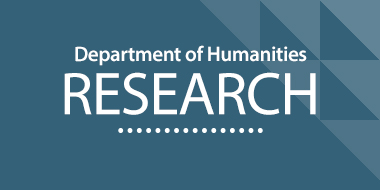-
Study
-
Quick Links
- Open Days & Events
- Real-World Learning
- Unlock Your Potential
- Tuition Fees, Funding & Scholarships
- January Study
- Real World Learning
-
Undergraduate
- Application Guides
- UCAS Exhibitions
- Extended Degrees
- School & College Outreach
- Information for Parents
-
Postgraduate
- Application Guide
- Postgraduate Research Degrees
- Flexible Learning
- Change Direction
- Register your Interest
-
Student Life
- Students' Union
- The Hub - Student Blog
- Accommodation
- Northumbria Sport
- Support for Students
-
Learning Experience
- Real-World Learning
- Research-enriched learning
- Graduate Futures
- The Business Clinic
- Study Abroad
-
-
International
International
Northumbria’s global footprint touches every continent across the world, through our global partnerships across 17 institutions in 10 countries, to our 277,000 strong alumni community and 150 recruitment partners – we prepare our students for the challenges of tomorrow. Discover more about how to join Northumbria’s global family or our partnerships.
View our Global Footprint-
Quick Links
- Course Search
- Undergraduate Study
- Postgraduate Study
- Information for Parents
- London Campus
- Northumbria Pathway
- Cost of Living
- Sign up for Information
-
International Students
- Information for International Students
- Northumbria and your Country
- International Events
- Application Guide
- Entry Requirements and Education Country Agents
- Global Offices
- English Requirements
- English Language Centre
- International student support
- Cost of Living
-
International Fees and Funding
- International Undergraduate Fees
- International Undergraduate Funding
- International Masters Fees
- International Masters Funding
- International Postgraduate Research Fees
- International Postgraduate Research Funding
-
International Partners
- Agent and Representatives Network
- Global Partnerships
- Global Community
-
International Mobility
- Study Abroad
- Information for Incoming Exchange Students
-
-
Business
Business
The world is changing faster than ever before. The future is there to be won by organisations who find ways to turn today's possibilities into tomorrows competitive edge. In a connected world, collaboration can be the key to success.
More on our Business Services-
Business Quick Links
- Contact Us
- Business Events
- Research and Consultancy
- Education and Training
- Workforce Development Courses
- Join our mailing list
-
Education and Training
- Higher and Degree Apprenticeships
- Continuing Professional Development
- Apprenticeship Fees & Funding
- Apprenticeship FAQs
- How to Develop an Apprentice
- Apprenticeship Vacancies
- Enquire Now
-
Research and Consultancy
- Space
- Energy
- AI and Tech
- CHASE: Centre for Health and Social Equity
- NESST
-
-
Research
Research
Northumbria is a research-rich, business-focused, professional university with a global reputation for academic quality. We conduct ground-breaking research that is responsive to the science & technology, health & well being, economic and social and arts & cultural needs for the communities
Discover more about our Research-
Quick Links
- Research Peaks of Excellence
- Academic Departments
- Research Staff
- Postgraduate Research Studentships
- Research Events
-
Research at Northumbria
- Interdisciplinary Research Themes
- Research Impact
- REF
- Partners and Collaborators
-
Support for Researchers
- Research and Innovation Services Staff
- Researcher Development and Training
- Ethics, Integrity, and Trusted Research
- University Library
- Vice Chancellors Fellows
-
Research Degrees
- Postgraduate Research Overview
- Doctoral Training Partnerships and Centres
- Academic Departments
-
Research Culture
- Research Culture
- Research Culture Action Plan
- Concordats and Commitments
-
-
About Us
-
About Northumbria
- Our Strategy
- Our Staff
- Our Schools
- Place and Partnerships
- Leadership & Governance
- University Services
- Northumbria History
- Contact us
- Online Shop
-
-
Alumni
Alumni
Northumbria University is renowned for the calibre of its business-ready graduates. Our alumni network has over 250,000 graduates based in 178 countries worldwide in a range of sectors, our alumni are making a real impact on the world.
Our Alumni - Work For Us
What will I learn on this module?
This module introduces you to literary studies at university, past and present. You will learn how the formation of (English) Literature as a degree subject played into approaches to the study of literature from the early twentieth century, and still influence popular understandings of what it is we (lecturers and students) really do when we ‘study literature’. Early discussions will include case studies to help explain some of the debates about the nature of literary studies. We will then work with a text that has been labelled as ‘canonical’ (e.g. Shakespeare’s Hamlet) to critique the concept of canonicity and ask what it is we do when we go ‘beyond the basics’ of textual engagement. That text will then become the central point of reference across the rest of the module, as we investigate different theoretical and critical approaches.
During the module you will be asked to read a range of critical essays, discussing them in individually and in relation to each other. The module aims to foster your skills in close textual analysis, informed by key theoretical perspectives and independent reflective practice.
How will I learn on this module?
Learning and teaching activities will be delivered through weekly 1.5 hour mixed-mode classes. These will include lecture and workshop elements as well as whole-class and group discussions. Lecture elements will introduce you to the formation and state of the discipline, and to theoretical and critical concepts found in the set reading. Workshop and discussion elements will help you to work through challenging material with other students under the guidance of the module tutor. You will be encouraged to unpack theoretical concepts and critical arguments and interpretations . Through your reading and class discussions, you will develop intellectual, practical and transferable skills.
The module makes appropriate use of technology enhanced learning through use of a virtual learning environment and the online support offered by Northumbria’s SkillsPlus programme.
In addition to scheduled classes, you are expected to undertake both directed and independent learning. Directed learning includes individual and small-group preparation for classes (both reading and written work). Independent learning includes further reading and investigation, the consolidation of seminar materials, and preparation for the module assignments.
How will I be supported academically on this module?
Lecture and seminar content in classes, and your preparation for taught sessions, will develop your academic skills as you engage with primary, secondary, theoretical and contextual material. You will be directed to relevant aspects of the university SkillsPlus site to help you prepare, understand and develop key skills which support your studies across the degree programme. This work will help you to attain the module learning outcomes, and, more importantly perhaps, to enjoy reading and thinking about critical concepts.
A virtual learning environment and Module Guide provide details of lectures, seminars, reading lists and assessment criteria. Lecture slides are made available on the virtual learning platform, together with links to relevant reading and skills materials in the library.
The module tutor is available in classes, as well as during office hours, to discuss any queries or concerns you have.
The formative assignment will be undertaken in groups to help you develop your ideas through discussion and negotiation with others. Feedback on the first summative assessment serves as ‘feed forward’, giving guidance on how to develop through the module as a whole, as well as in relation to the third and final assessment
You are advised to see your Guidance Tutor at least twice each semester to review your academic progress. The Guidance Booklet, which you receive at the start of your first year, includes structured materials designed to help you develop your self-reflection skills. These materials underpin the academic side of the regular Guidance meetings, helping you to learn how to best use the feedback you receive on your assignments, how to build on your strengths, and improve in the areas where you could perform better.
What will I be expected to read on this module?
All modules at Northumbria include a range of reading materials that students are expected to engage with. Online reading lists (provided after enrolment) give you access to your reading material for your modules. The Library works in partnership with your module tutors to ensure you have access to the material that you need.
What will I be expected to achieve?
Knowledge & Understanding:
1. Show an understanding of some theoretical and critical approaches to literature, and have begun to apply them.
2. Evidence an awareness of the ways in which theoretical and critical positions relate to questions of value and power.
Intellectual / Professional skills & abilities:
3. Engagement with the demands and practices of good academic and ethical conduct.
4. Developed skills in close textual analysis and discussion in written form.
Personal Values Attributes (Global / Cultural awareness, Ethics, Curiosity) (PVA):
5. Show an appreciation of the way in which developments in literary studies as a university discipline relate to broader historical and ideological debates.
How will I be assessed?
1. Poster (group project; formative)
2. 1x1000 word close analysis (40%)
3. 1X1500 word essay (60%)
The summative assessment strategy is closely related to learning outcomes and the teaching and learning strategy.
1. The first assignment (formative) is a poster to be produced through groupwork, and workshopped in class in advance of submission. The poster will relate to the formation of the discipline, the current state of the discipline, and/or ideas for the future of the discipline. Feedback will be provided in class and the assignment will form a touchstone for students’ (changing) sense of the discipline over the course of the module.
2. The second assignment (summative) is a 1,000 word close analysis of a text extract inspired by one of the critical approaches studied during semester 1. This will contribute 40% of the overall assessment and addresses KU 1, IPSA 3 & 4 and PVA 5. This assignment also acts as formative assessment for the second more demanding piece of work and this process will be made explicit in an interim discussion of feedback and strategies for addressing it in semester 2.
3. The third assignment (summative) is a 1,500 word essay on a set literary text, informed by critical texts studied on the module and further reading. This is worth 60% of the overall module mark and addresses KU 1 & 2, IPSA 3 & 4 and PVA 5.
The assessment tasks ensure that students engage in a range of guided and semi-independent tasks, address a range of sources and refer to all parts of the syllabus.
Written feedback will be provided as an overall statement as well as through individual comments on details of the submission.
Pre-requisite(s)
None
Co-requisite(s)
None
Module abstract
This module introduces students to the concepts of literature and criticism at play in the foundation and development of literary studies as a university discipline, and in the present-day study of literature at degree level. It engages with how the concepts of ‘the canon’ and ‘practical criticism’ came to dominate thinking about literature in the early twentieth century, and then introduces the many ways in which those concepts have been incorporated, challenged, and revised into more complex understandings of what is possible through literary study. This module offers a supportive framework for you to build up your knowledge of critical and theoretical approaches. Classes and assessments are designed to develop your analytic skills, as well as your confidence in unpacking and communicating complex ideas. By the end of the module, you should have a good understanding of the diversity of literary studies at degree level today, and of your own place in that dynamic critical landscape.
Course info
UCAS Code T700
Credits 20
Level of Study Undergraduate
Mode of Study 3 years Full Time or 4 years with a placement (sandwich)/study abroad
School Humanities and Social Sciences
Location City Campus, Northumbria University
City Newcastle
All information is accurate at the time of sharing.
Full time Courses are primarily delivered via on-campus face to face learning but could include elements of online learning. Most courses run as planned and as promoted on our website and via our marketing materials, but if there are any substantial changes (as determined by the Competition and Markets Authority) to a course or there is the potential that course may be withdrawn, we will notify all affected applicants as soon as possible with advice and guidance regarding their options. It is also important to be aware that optional modules listed on course pages may be subject to change depending on uptake numbers each year.
Contact time is subject to increase or decrease in line with possible restrictions imposed by the government or the University in the interest of maintaining the health and safety and wellbeing of students, staff, and visitors if this is deemed necessary in future.
Useful Links
Find out about our distinctive approach at
www.northumbria.ac.uk/exp
Admissions Terms and Conditions
northumbria.ac.uk/terms
Fees and Funding
northumbria.ac.uk/fees
Admissions Policy
northumbria.ac.uk/adpolicy
Admissions Complaints Policy
northumbria.ac.uk/complaints








.png?modified=20251118133403)




